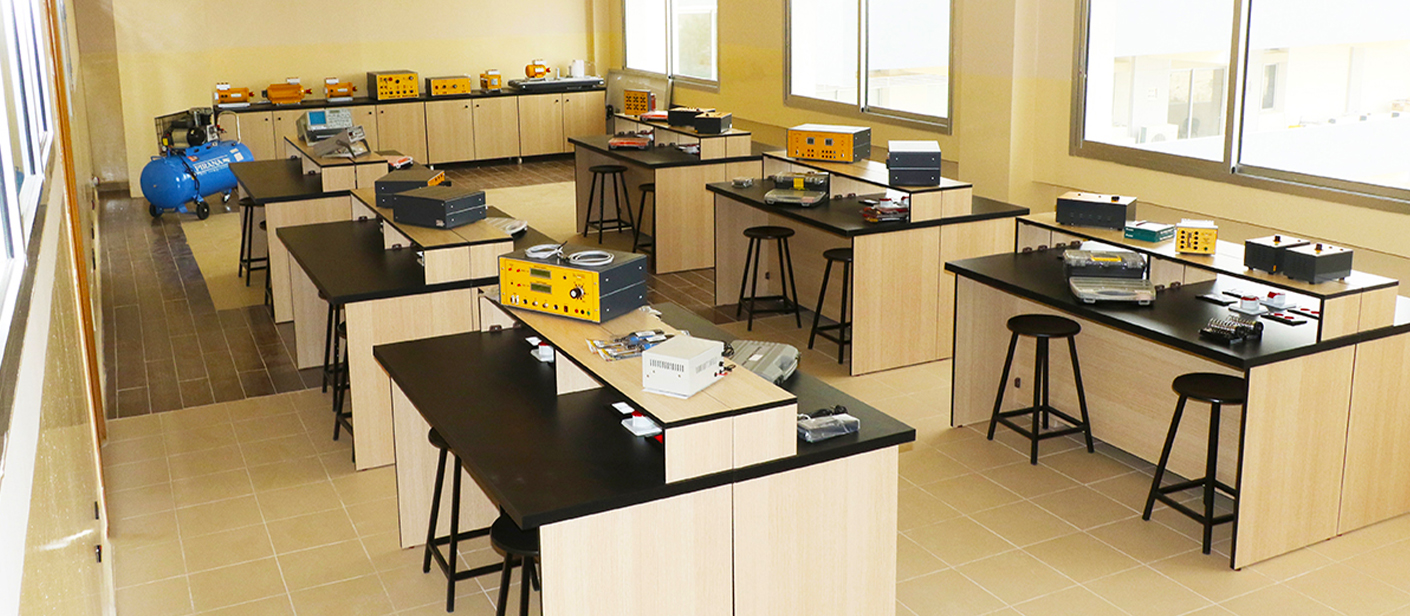The Electrical Engineering Laboratory is located in Block B, Room 312. In the laboratory, there are twelve stations with different electrical outlets and essential engineering instruments, including oscilloscopes, function generators, voltmeters, multimeters, and communication kits. To enhance learning, five computer stations are available for students to engage in virtual simulations and circuit design activities within the electric field using MPLAB, MATLAB/Simulink, PSpice, and other relevant software programs.
The Electronics Facility provides the experiential learning of topics relevant to both circuits and electronics courses: voltage and current dividers, Thevenin and Norton equivalent circuits, sinusoidal waveforms and their properties, RLC circuit responses, transistor, and diode circuits.
The equipment available in the Electronics Facility allows students to:
- Conduct experiments while adhering to lab safety rules and procedures
- Design and build various electronic circuits
- Use electronic tests and measurement instruments such as oscilloscopes, timers, function generators, etc.
- Draw conclusions based on read measurements from electronic circuits
The Control Systems Facility is designed to cover the hardware and software organization of a typical microcontroller, programming in assembly language and C, interfacing with peripheral devices, input-output programming, A/D converters, digital signal processing (DSP) operations, and real-time applications.
Some of the major equipment available in this facility are:
- Xilinx FPGA prototype boards
- Microchip 16F prototype boards
- Analog/Digital trainers
The Instrumentation Facility facilitates experiments that cover various sensors, signal conditioning circuits, data acquisition, and digital control.
Some of the major equipment in this facility are:
- Circuit elements and ICs for signal conditioning
- Various sensors for measuring the elements such as accelerometer sensors, K-type thermocouple sensors, etc…
- Arduino Uno microcontroller boards
The Power and Machines Facility facilitates experiments that cover the fundamentals of AC machines (construction, principles of operation, testing, regulation, and efficiency), including principles of magnetic systems, three-phase circuits, power calculation, transformers, synchronous generators, and induction motors.
Some of the major equipment available in this facility are:
- Transformers (single and three phase):
- Perform no-load tests
- Perform short circuit tests
- Synchronous Motors:
- Analyze the operation of synchronous motors under loaded conditions
- Generate understanding about the starting procedures for delta and star connections
- Analyze the V-curve of a synchronous motor
- Induction Motors:
- Analyze the operation of induction motors under loaded conditions
- Perform no-load tests
- Perform DC tests
- Perform locked rotor tests
The Communication Systems Facility is equipped with advanced communication trainers and digital oscilloscopes that allow students to conduct experiments in both analog and digital communications. Topics include, but are not limited to:
- AM & FM modulation/demodulation
- Sampling and quantization
- PCM encoding/decoding
- ASK/FSK/PSK






